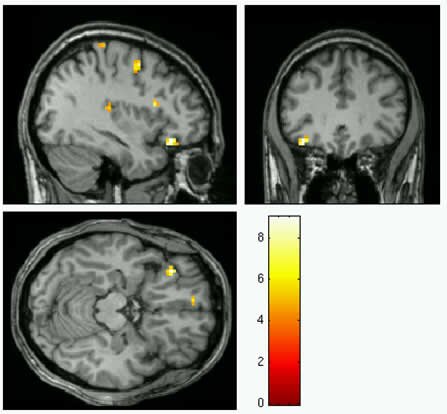Expected outcomes
 BRAINTRAIN will improve and adapt the methods of real-time fMRI NF for clinical use, including the combination with electroencephalography and the development of standardized procedures for the mapping of brain networks that can be targeted with NF. Its core component will be the exploration of the efficacy of fMRI-NF in selected mental and neurodevelopmental disorders that involve motivational, emotional and social neural systems targetable with this technique and pose major public health problems because of their prevalence and hitherto limited treatment options. The development and evaluation of fMRI-NF protocols for these disorders is thus particularly promising on both neurobiological and clinical grounds.
BRAINTRAIN will improve and adapt the methods of real-time fMRI NF for clinical use, including the combination with electroencephalography and the development of standardized procedures for the mapping of brain networks that can be targeted with NF. Its core component will be the exploration of the efficacy of fMRI-NF in selected mental and neurodevelopmental disorders that involve motivational, emotional and social neural systems targetable with this technique and pose major public health problems because of their prevalence and hitherto limited treatment options. The development and evaluation of fMRI-NF protocols for these disorders is thus particularly promising on both neurobiological and clinical grounds.
Furthermore, it has the potential of being cost-effective as well. Current therapeutic approaches require the presence of a therapist, and the real life transfer of imaging based neurofeedback approaches piloted within BRAINTRAIN would help reduce costs and aid generalization of therapies.
We also expect that the health economic evaluation of the new intervention and prevention strategies developed within BRAINTRAIN will suggest ways of reducing wider costs associated with these disorders, such as those associated with absence from work and early retirement, and thus respond to urgent societal needs.
